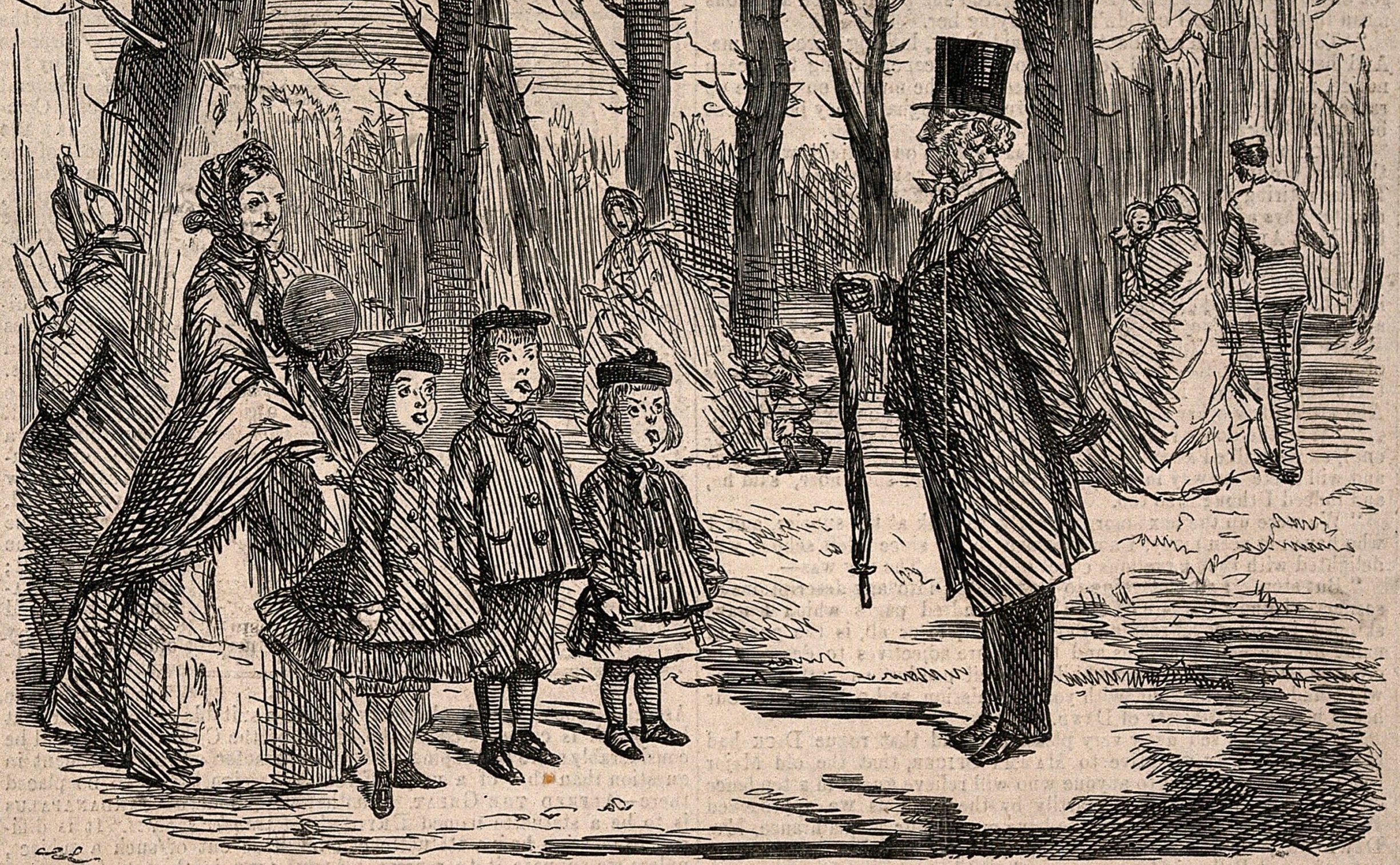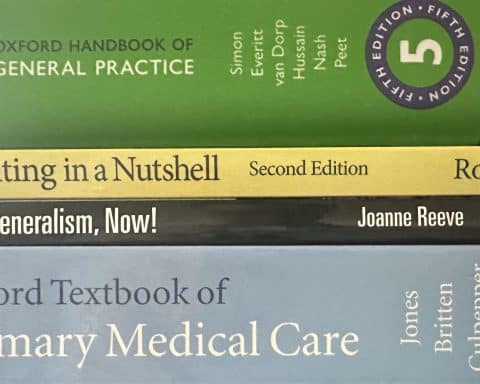
As our NHS shows increasing signs of its own sickness, many are calling for more funds, staffing, and technology. These may be necessary but are certainly not sufficient. What else of importance are we missing?
Early July 2023. The 75th anniversary of the foundation of the NHS. Surely, in previous decades a spirit of celebration would have come more wholehearted and unalloyed, but now blessings are stuttering; increasingly uncertain and contended, tawdry and tarnished.
This birthday, though, provoked a passing glut of offerings from journalists, critics, politicians, and gurus across the print and broadcast media. Almost all — apart from the government and its spokespersons — now agree on certain realities. For example, that compared with similar (European) countries, our healthcare investment and funding is significantly less; that this accounts for important poorer outcomes (for example, for cancers and perinatal mortality); that these longer-term damages and deficits far exceed the possibly (but certainly arguable) expediency-benefits from the austerity years; that the reforms forcing the marketised commodification of NHS health care — and then its competitive commissioning (including outsourcing) — have not galvanised ‘productivity’ but have yielded us the reverse.
There are now numerous recent journalistic accounts and data studies unmistakably displaying the failures of expected services and the interrelated depopulation of an increasingly stressed — then distressed and hazarded — clinical staff.
Pundits views have mostly agreed about the broad measures necessary to stem, then reverse, this decline and disintegration. So too has their analysis of some problems. For example, three very eminent doctors interviewed by BBC Radio 4 on 5 July briskly reiterated the twin panaceas: we must urgently provide considerably more funding, together with more training, to increase the numbers of health professionals. The distinguished Professor of Medicine among them then asserted a third: ‘we must markedly increase the use of digital technology to make the workforce more efficient, otherwise they’ll all burn out’, he said. These Three Wise Doctors rapidly agreed on these essential elements with alacrity: they concluded this panel interview with an illusion of reassuring authority.
*****
But these august prescriptions for our service are themselves highly problematic — they are far easier to prescribe than to implement. If we take the first two — to increase funding and staffing — where will the money come from?
While most people may say they want, expect, and ‘deserve’ a better health service to be provided by the government, far fewer are willing to pay more. Yes, the blessings that our longer and healthier lives may bring us are expensive privileges: they depend on our providing both increased human care and more expensive technology.
This truth is denied by so many of us who retreat into varieties of NIMBYism or cakeism: ‘Yes, we need more social housing, but I neither want to pay for it, nor have anything built near me’.
Our main political parties tacitly recognise this conundrum and so dare not confront the electorate directly with the necessity to raise progressive taxes to pay for what we say we value.
The current government is attempting a perilous conjuring trick, apparently procuring the resources and benefits without sustainable means.
“If we are to make sustainable and substantial improvement to our ailing services, we must provide and invest more.”
If we are to make sustainable and substantial improvement to our ailing services, we must provide and invest more. Three decades of serial reforms attempting ‘efficiency-savings’ have generally provided the opposite.
If we want better outcomes, we need a more generous input, not more coercive ratcheting or streamlining.
If, to do this, other government responsibilities and departments are to be cut, then which ones? Housing? Education? Social care? Foreign aid? Police? Transport? Environment?
And, simply hypertaxing the very rich can easily backfire, as the Callaghan government discovered 50 years ago. Substantial, progressive taxes of large corporations — however morally and socially justified — are almost impossible to effectively implement without unanimous, flawless international cooperation and coordination. How do we achieve that?
Maybe the current crisis in our welfare services will serve as a tipping point, an epiphany, in our collective awareness. We may awaken to recognise that we have got the balance of our wealth distribution and investment substantially wrong — that paying managers of commodities, informatics, commerce, and finance so much more than the stewards of our communities’ welfare and the carers of our human vulnerability is a form of civilised madness. We have evolved an economy that places far more value on the inorganic/unliving than the organic/living.
Perhaps we will awaken to how poorly we are balancing our needs for individual autonomy, initiative, responsibility, and reward (Capitalism) versus our collective need to protect one another from life’s hazards, vulnerabilities, and misfortunes (Socialism).
Such skewed balance is a problem for all current democracies that have broadly adopted a neoliberal philosophy to (speciously) fuel economic growth.
“If we want better outcomes, we need a more generous input, not more coercive ratcheting or streamlining.”
That neoliberal approach to society and its welfare misguides us with mistaken assumptions of human individuals, groups, and their work together. It assumes that financial incentives, and then commerce and managerial structures, are the primary motivators of desired activity. Such a model discounts the importance of meaning, relationships, and community in any work, and in life generally.
And if — eventually — attention is drawn to such crucial human vagaries they are usually poorly understood in our neoliberal culture: attempts are made to ‘manage them in’ to industrial systems, as if these human attributes can be designed, manufactured, and then bolted on, rather than ab initio naturally grown and nurtured.
This misconception, then disconnection, accounts for much of the growing conflictual malaise — currently expressed in strike action — of doctors. The identified battleground is about money. Money is certainly important, but the underlying problems are more important still: they are about meaning, personal value, belonging, and relationships — the often unarticulated elements of ‘working conditions’.
The conflict between doctors and the government is now like an unhappy marriage: the embattled couple usually eventually argue with angry accusations about money, but the deeper problem is the failure of love, trust, and meaningful connection. If these have perished, no amount of money will restore what is lost: only slow and patient tendering of regrowth can possibly restore them.
So it is with our NHS health care.
*****
So much for ‘simply’ increasing funding and staffing. What about massively increasing IT and AI into our health care? The Professor in the BBC Radio 4 interview talked with breezy optimism about the benefits these would and should surely bring to our NHS economy and efficiency. This view has been similarly vaunted by many with power and influence: senior executives, politicians, and healthcare think tanks. Only rarely do any of these caution us to the perils and losses massively expanded IT and AI bring us.
And perils and losses there certainly are. Some of these are already clearly evident, though — interestingly — little discussed or understood in the terms being considered here. Take, for example, how the experience of both practitioners and patients has been transformed by the infusion of, then direction by, digital technologies in general practices.
The typical GP is now spending more time looking at screens than patients. Much of that time will be spent outside of any consultation: they will be gazing at data and missives about investigations and events concerning people whose names or faces they do not recognise. Amid this endless text-blizzard screened to them are all kinds of organisational and institutional messages of suggestion, mandate, information, alert, update, enquiry, or concern from other ever-increasing numbers of agencies, authorities, or institutions.
“The conflict between doctors and the government is now like an unhappy marriage … “
The fact that such internet communication is ‘free’ and can be effortlessly sent, copied, and mass-produced means that the amount of electronic mail the doctor receives is several hundred per cent more than in the days of mechanically-typed, personally-signed, then stamped and snail-mailed paper letters.
Add to this the screen-demands for digital-compliance, where the practitioner must enter satisfactorily various codes, data, and performance-checks in order to proceed (whatever the practitioner thinks of the relevance of these to the task at hand); add to this the fact that most other healthcare professionals and their support staff are similarly endlessly blizzarded by near identical-looking text-saturated serial screens that they must make decisions about, respond to, delegate, or carefully eliminate; add to this the fact that these workers rarely have any personal link or knowledge of the person or organisation they are processing or responding to …
What does all this mean?
It means that the more we cybernate systems, the more we depersonalise, then dehumanise them. This matters less for problems that can be simply and unambiguously defined and then decisively eliminated by generic technologies (for example, many acute surgical and medical conditions), but for all else, personal relationships and understandings are often crucial for better diagnostic formulation and therapeutic effect.
And what does that mean?
That implicates the whole of pastoral health care — that is most of primary care and mental health: disorders of maturation and development, those that are stress-related or ‘psychosomatic’, all chronic conditions, most of mental health, degenerative ageing conditions, and then palliative and terminal care.
Despite the fact that this vast panoply accounts for the largest part of problems presenting to the NHS, few of them can be rapidly sorted and decisively fixed by mere generic knowledge or interventions. All require some bespoke, and thus individual, understanding to best support, advise, anchor, encourage … and heal.
Such pastoral health care requires not just a scientific knowledge of illnesses — their likely course and best treatments — but also a more intimate knowledge of individual patients — their stories, their internal and external resources, and losses. This is the fare of personal continuity of care; it is the stage on which the Art of medicine (as opposed to its Science) is best played.
“We have evolved an economy that places far more value on the inorganic/unliving than the organic/living.”
And it is such Art and personal continuity of care that is inevitably imperilled, then destroyed, by an unrestrained charge into remote and digital services. Yes, certainly these technologies have now an essential and irreplaceable role: for example, data can be securely stored, easily accessed, and rapidly and accurately transmitted. This confers indisputable advantages, for example, with serious conditions, especially where the location of clinical responsibility might rapidly change. Also managers, various analysts, and policymakers can more easily monitor, track, and intervene in systems in proportion to their degree of automation, digitalisation, and cybernation.
But what is the price of such expediencies, such advantages? We can see the consequences now in this IT-leached NHS: generally as the IT becomes more complex and comprehensive, the personal contact and understanding becomes more inaccessible and nonresonant. There is — unless we are very careful — an inverse relationship between the two. AI is said to be in its infancy: generic (artificial) intelligence seems sure, if not by design then by default, to displace personal (human) intelligence.
In general practice all involved are, increasingly, already subject to a no-one-knows-anyone-but-just-do-as-you’re-told-and-follow-the-algorithm culture. Doctors are increasingly rota’d in unprecedentedly large practices where they are most unlikely to personally bond with or understand their patients, colleagues, or support staff. They are operating in a cyberbubble-come-command-capsule.
Patients now are generally processed by cybersystems that are designed to minimise or even eliminate the need for personal contact. Automated systems answer and filter phone calls, online bookings are optimised, remote consultations expedited, and surgery attendees will often be ‘greeted’ by an interrogating screen, not a face-and-voice-familiar friendly receptionist who can offer the first of guiding, containing, and anchoring experiences.
And our now non-receiving receptionists are probably commandeered to marshal, download, direct, and file the endless burden of e-traffic for patients and colleagues who they have neither the time nor conversational space to get to know, or even know who they are.
“In general practice all involved are … subject to a no-one-knows-anyone-but-just-do-as-you’re-told-and-follow-the-algorithm culture.”
Such personal dis-identification is, perhaps, felt most acutely in the consulting room. For the patient, they will very often see a doctor who they will never see again. The frustration for them is not just the meaningless (for them) repetition of facts and histories. It is the lack of our all-too-human need (often) for the personal recognition, understanding, and trust that can only grow from contact and familiarity. One-off sensitivity and courtesy may be a good bridge but is rarely an adequate substitute. Such needs-responses are often subliminal, rarely explicit, and yet often crucial.
Older, pre-cybernated doctors need no persuading of all this. For most, this weft of the personal and the scientific — the Art of medicine — provided the human meaning and nourishment that fuelled their long vocational careers. Their work in that more personally anchored culture was largely guided by their values, their clinical knowledge, and the relationships — the community — they made with their staff and patients. Rarely then were their thinking or their actions so directly controlled by an external agency.
That has changed drastically for younger doctors. Hot-desking, sharply time-slotted into complexly rota’d services, consultations pre-scribed by pro formas and algorithmic templates, and then corporate performance requirements … all these have often derogated any Art in medical practice to similes of industrial factory assembly lines or call centres.
Little of this was possible before the unleashing of IT into our health care. Younger doctors, who have not witnessed this evolution, may not understand all this, but they feel it. They know they feel ungratified, frustrated, stressed, and uncared for. They rarely feel part of a small trusting professional community serving a larger surrounding community. The technical resources may be available, but not the bonds, stories, and relationships that make all the rest not just endurable, but deeply and personally meaningful and satisfying. They must endure in a lonely crowd.
All of this may not be conscious, but it is sensed. That sensation without clarity leads to confusion: arguments about pay become much easier than articulating our human anomie and disinheritance.
Unless and until such issues are thoroughly understood and addressed, no amount of extra funding, training, or recruitment will relieve our workforce problems: professionally unhappy and unfulfilled doctors will continue to drain away. People have got to like this kind of work to do it well and want to stay.
This is the legacy of a care-less expansion of IT and AI into our personal health care. This is what the Three Wise Doctors did not address.
Featured photo by Annie Spratt on Unsplash.








